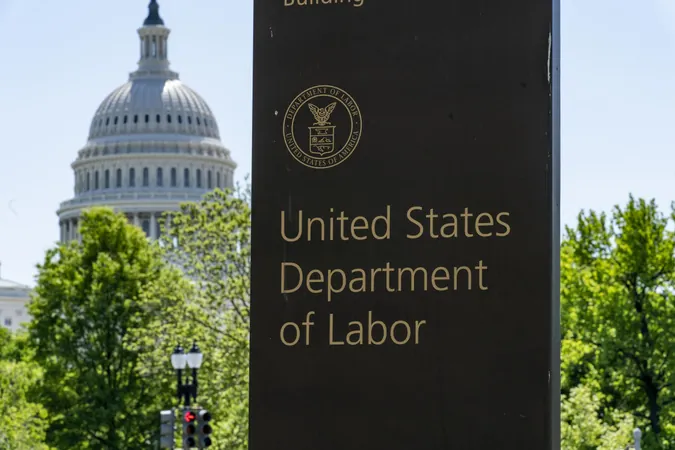
Small Business Owners Rejoice as Overtime Rule Reversal Eases Financial Burdens
2024-11-26
Author: Jessica Wong
In a welcome relief for small business owners across the nation, a recent judicial ruling has struck down an overtime pay expansion rule that would have significantly increased labor costs for many. On November 15th, a Texas federal judge nullified the Biden administration's plan designed to extend overtime eligibility to many salaried workers.
Under existing U.S. law, hourly workers are typically entitled to overtime pay after completing 40 hours in a workweek. However, the proposed changes aimed to extend that coverage to salaried employees earning under a higher income threshold. This new rule was set to boost the annual salary cap for overtime eligibility from the previous limit of $35,568—established in 2019 during the Trump administration—to a staggering $58,656 starting January 1, an increase that many saw as the most substantial in decades.
The recent court decision has reinstated the lower threshold. The judge emphasized that the Department of Labor lacked the authority to prioritize employee wages over the nature of job duties while determining overtime eligibility.
Small business leaders are celebrating this ruling as a victory for financial sustainability. Guillaume Drew, founder of Or & Zon, a sustainable home goods retailer based in New York, expressed relief, noting that the reversal of the rule would allow him to manage labor costs effectively. Drew stated that while he prioritizes fair compensation for his employees, he would instead offer attractive incentives such as spa days and remote work options rather than incurring the higher costs associated with overtime wages.
Sheldon Sutherland, the owner of Epoxy Werx in San Diego, echoed similar sentiments. With a workforce of 12 employees, Sutherland highlighted the importance of maintaining financial stability within his business. “Managing labor costs is critical for a small business like mine, especially as we continue to navigate the impacts of the pandemic,” he said.
The decision has drawn applause from small business organizations who recognize the potential negative impact of the proposed changes. John Arensmeyer, founder and CEO of Small Business Majority, pointed out that the proposed adjustments did not adequately consider inflation and were overly ambitious for businesses still recovering from the economic fallout of COVID-19.
Smaller enterprises, which have been grappling with tight budgets and fluctuating consumer demands, are now breathing a sigh of relief. This ruling allows them to sustain current wage structures without burdening their finances with sudden, large-scale pay increases. As the labor landscape evolves, small business owners are now able to refocus their efforts on growth and employee morale, finding a balance between financial viability and workforce satisfaction.
With the complexities of labor regulations continually changing, this ruling has prompted business owners to rethink how they will structure their compensation strategies while ultimately fostering a more stable economic environment.



 Brasil (PT)
Brasil (PT)
 Canada (EN)
Canada (EN)
 Chile (ES)
Chile (ES)
 España (ES)
España (ES)
 France (FR)
France (FR)
 Hong Kong (EN)
Hong Kong (EN)
 Italia (IT)
Italia (IT)
 日本 (JA)
日本 (JA)
 Magyarország (HU)
Magyarország (HU)
 Norge (NO)
Norge (NO)
 Polska (PL)
Polska (PL)
 Schweiz (DE)
Schweiz (DE)
 Singapore (EN)
Singapore (EN)
 Sverige (SV)
Sverige (SV)
 Suomi (FI)
Suomi (FI)
 Türkiye (TR)
Türkiye (TR)